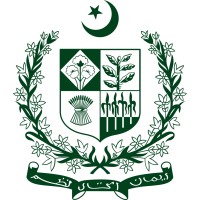By Staff Reporter
ISLAMABAD: The finance ministry said on Wednesday that the country faced a persistent challenge of high debt payments, as the government’s current spending soared by 44 percent in the first four months of the fiscal year, driven by a surge in interest costs.
In a monthly economic update, the ministry said it expected inflation to remain high at around 27.5-28.5 percent in December and ease to 24-25 percent in January, despite a recent cut in fuel prices as it raised the regulated prices of gas.
The ministry said it had successfully reduced the fiscal deficit to 0.8 percent of gross domestic product and improved the primary surplus to 1.43 trillion rupees ($8.5 billion) in the July-October period, thanks to a substantial increase in revenue collection and prudent expenditure management.
The Federal Board of Revenue surpassed its tax revenue target by Rs27 billion for July-November, indicating that tax policy and administrative measures were paying off. The FBR is expected to achieve the fiscal year 2023/24 tax collection target, which ends in June.
However, the current spending grew by 44 percent mainly due to a significant rise in interest payments that increased by 63 percent in the first four months of the fiscal year, while non-interest spending witnessed a restricted growth of 19 percent.
“Considering this, the government will continue the current fiscal strategy to achieve set targets, emphasizing both revenue enhancement and prudent expenditure control.”
The ministry said the overall economic outlook was optimistic, marked by receding inflationary pressures, positive prospects in agriculture, signs of potential recovery in the industrial sector, and a favorable external environment.
The economy grew by 2.13 percent in the first quarter of the fiscal year, largely contributed by agriculture and industry, and the twin deficit was on a downward trajectory, signifying better economic management to reduce the macroeconomic imbalances.
“This lays the foundation for progressing towards higher and sustainable economic growth. It is therefore expected that this positive momentum will further strengthen in the upcoming months,” the ministry said.
The inflation was seen at a moderate level for the remaining months of the fiscal year, despite the upward revision of administered prices of gas, which would affect the cost of production and consumption. The recent decline in petrol and diesel prices would help ease the inflationary pressure, as the fuel prices had a significant impact on the common man through reduced transportation and production costs.
The ministry urged the provincial governments to implement lower fares of public transport and freight charges in line with the reduced fuel prices to ease the inflationary pressure further.
Copyright © 2021 Independent Pakistan | All rights reserved




